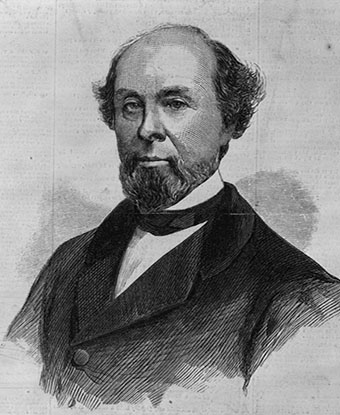Last updated: December 27, 2019
Person
Robert B. Rhett

Library of Congress
Robert Barnwell Rhett, born in Beaufort, South Carolina (born Robert Barnwell Smith) on December 21, 1800, was a politician, newspaper publisher, and rabid Fire-Eater. He owned the Charleston Mercury, a publication that spread his pro-slavery views and calls for secession.
Rhett served in the South Carolina legislature from 1826 to 1832. He then became South Carolina’s attorney general through 1837. Most notably, he represented his district in the US House of Representatives from 1837 through 1849. His final public service for the United States of America came in 1850 when he was elected to fill the US Senate seat vacated by the death of John C. Calhoun. Following his public service, he focused his time on the Charleston Mercury and supporting early attempts at secession.
Rhett was one of 169 South Carolinians who unanimously voted to secede from the Union on December 20, 1860. Rhett supported the idea of a convention to form a southern confederacy as states began to secede. Ironically, the men who assembled at this convention never supported Rhett’s inclusion in a high place in the new government. As a consolation, Rhett was made chairman of the committee drafting the permanent constitution.“There exists a great mistake...in supposing that the people of the United States are, or ever have been, one people. On the contrary, never did the sun shine on two peoples as thoroughly distinct as the people of the North and...South...Like all great nations of antiquity we are slaveholders and understand free governments. The North does not. They are a people wrapped up in selfishness. They have no idea of free government. Their idea of free government is this, that when three men get together, the two are to rule the one; when five men get together, the three are to rule the other two…” - November 10, 1860
Differences between the Confederate Constitution and the US Constitution addressed southern grievances causing the Civil War. The right to own slaves in both states and territories was protected. Congress could not pass any law impairing the right to own slaves as property. Neither could it impose a protective tariff or appropriate funds for internal improvements. This constitution limited a president to one six-year term.
Rhett served a one year term as a member of the Provisional Congress, the only political office he held for the Confederacy. He, like other Fire-Eaters, exemplified the irony of a states' rights inspired movement needing a centralized government. He sharply criticized President Jefferson Davis and his work to create a stronger executive.
After the war, Rhett settled in Louisiana and died there in 1876. He is interred in Magnolia Cemetery in Charleston.
